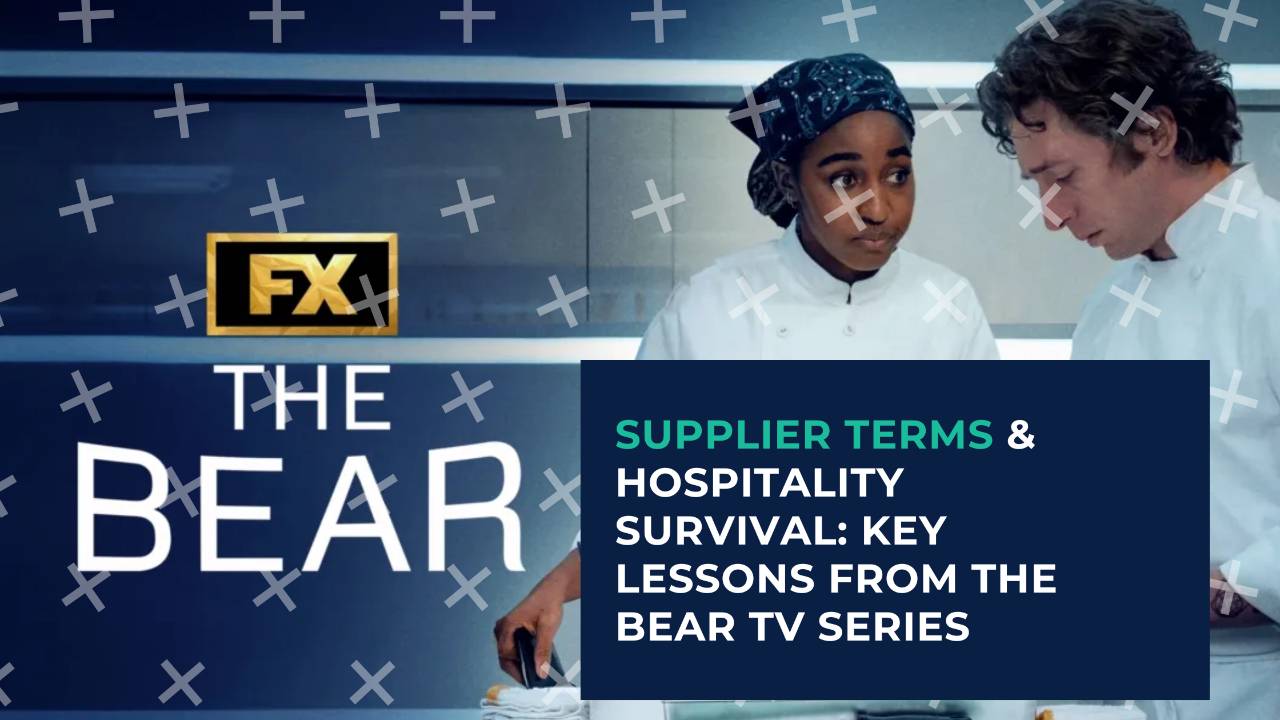When Your Suppliers Shift the Goalposts on your credit terms
Jul 04, 2025
I love The Bear in Disney+. If you haven't seen it, check it out. This is the second in three part series where The Bear showcasing exactly how a business cash flow is critical for success.
“They changed the terms. Again.” — Carmy, The Bear, S4E2
Running a restaurant—or any hospitality business—is a high-wire act, and few things can shake your balance like sudden changes from suppliers. In Season 4, Episode 2 of The Bear, Carmy and his crew hit another wall: their suppliers unexpectedly tighten credit terms and deliver lower-quality goods. It’s a gut punch for a team already working against a ticking clock.
At Chiefly, we’ve seen this scenario derail countless businesses—not because owners don’t care, but because supplier terms are often treated like background noise until they become a crisis. Let’s dig into how The Bear dramatizes this real-world risk and what hospitality leaders can do to protect their operations and cash flow.
1. Supplier Terms = Hidden Cash Flow Lifeline
In The Bear, Uncle Jimmy’s warning about cash flow in Episode 1 becomes painfully real in Episode 2. When suppliers reduce credit terms—meaning they want payment sooner—it instantly tightens The Bear’s cash position. The team suddenly has to pay up faster, draining funds needed for payroll, utilities, or emergency repairs.
Real-World Takeaway:
-
Supplier terms are essentially a loan. A “net 30” or “net 60” invoice lets you use inventory to generate revenue before paying the supplier. If terms shrink, it’s like your bank slashing your credit limit overnight.
-
Know your exposure. List your top suppliers and note their current terms. Even a change from net 30 to net 14 can mean thousands of dollars exiting your bank account earlier than planned.
2. Quality Takes a Hit Under Financial Pressure
In the episode, Carmy discovers that products from suppliers have not only increased in cost but dropped in quality. Subpar produce or proteins threaten the restaurant’s brand and guest experience—critical differentiators in hospitality.
Real-World Takeaway:
-
Cash flow issues ripple outward. Suppliers under financial stress might substitute cheaper goods or cut corners on quality. The first sign might be wilting herbs or inconsistent cuts of meat.
-
Quality assurance matters. Inspect deliveries before signing invoices. Document issues and communicate with your reps immediately to avoid repeated problems.
3. Relationships Are Your Best Insurance
Richie, Sydney, and Carmy scramble to negotiate with suppliers, highlighting how vital those relationships are. Suppliers aren’t just vendors—they’re strategic partners. Strong relationships can mean:
-
Priority when products are scarce.
-
Flexibility on terms during cash crunches.
-
Inside info on market trends or upcoming price hikes.
Real-World Takeaway:
-
Stay proactive, not reactive. Don’t wait until you’re in a crisis to talk to your reps. Schedule quarterly check-ins. Share your business goals and listen to theirs.
-
Diversify your options. Have a backup supplier for every critical ingredient or service. It’s insurance for price hikes, shortages, or sudden contract changes.
4. Negotiate, Don’t Just Accept
One of the hardest lessons in hospitality is that supplier terms are rarely set in stone. In The Bear, the team struggles to push back, caught off guard by sudden changes.
Real-World Takeaway:
-
Everything is negotiable. Volume commitments, payment terms, delivery frequency, and pricing tiers are all on the table. If a supplier values your business, they may be willing to find solutions.
-
Leverage technology. Use softwareto track purchasing patterns. Solid data strengthens your negotiating position.
5. Model the Impact of Changes
A big mistake businesses make is assuming they can absorb supplier term changes without recalculating cash flow forecasts. In The Bear, the team is already running on tight margins—shorter terms and higher costs could sink them.
Real-World Takeaway:
-
Run scenarios immediately. How will cash look if your biggest supplier changes net 30 terms to net 14? Can you cover payroll? Rent?
-
Look at your menu mix. Can you swap in alternative ingredients to protect margins without compromising quality?
6. Protect Your Reputation
Low-quality supplies don’t just hurt costs—they damage your brand. Guests remember bad meals far longer than they remember great ones.
Real-World Takeaway:
-
Quality is non-negotiable. If a supplier consistently disappoints, walk away—even if their terms are attractive. One bad review on social media can cost you far more than switching vendors.
Bottom Line: Don’t Let Supplier Terms Dictate Your Fate
The Bear Season 4 is a master class in how quickly operational chaos can follow financial instability. Supplier relationships are not just a line item—they’re the lifeblood of your business. Just like Carmy’s team, hospitality leaders must stay vigilant, proactive, and strategic.
At Chiefly, we help businesses navigate these complexities every day. Don’t wait for a crisis to reexamine your supplier contracts, payment terms, and cash flow scenarios. Your business—and your guests—deserve better than surprises in the delivery truck.
Find out more about how Chiefly can help you
The Chiefly Dispatch
Clarity for growing businesses. In your inbox.
Running a $1M–$20M business without a COO? You’re not alone.
The Chiefly Dispatch delivers real-world insights, simple tools, and strategic nudges to help you scale smarter—across the stuff that usually falls through the cracks
We hate SPAM too.

